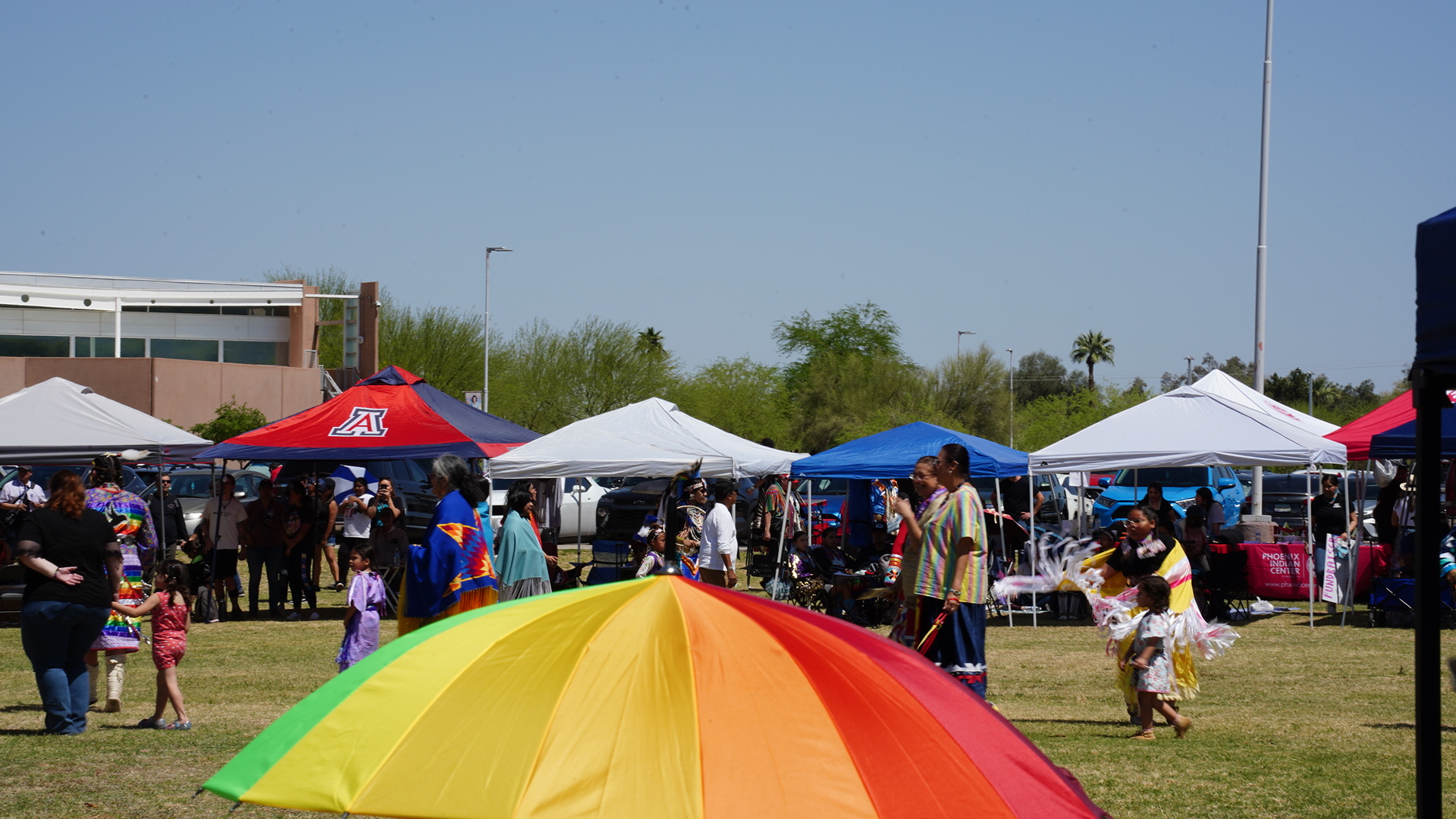
- Details
- By Darren Thompson
The 3rd Annual Two-Spirit Powwow celebrated with 60 registered dancers and six drums representing various tribes from all over Indian Country.
Prior to European colonization, many Indigenous communities acknowledged five genders: male, female, two-spirit males, two-spirit females, and transgendered. Two-spirit is a term generally and exclusively used by American Indian people and communities that define a male or female as having two genders—male and female simultaneously.
“In many different tribes, many Two-Spirit community members are very important and vital, and because we’re in an urban center, we’re not necessarily around our ancestral homelands,” Phoenix Indian Center’s Chief Executive Officer Jolyana Begay-Kroupa told Native News Online. “In many instances, our teachings become lost over time. This powwow is really about organizing a way to come back together, support and celebrate our brothers and sisters who are in the LGTBQ2S community.”
The Phoenix Indian Center has been organizing the powwow since 2021, when it was held virtually and has remained committed to supporting the LGBTQ2S community ever since. Founded in 1947, the Phoenix Indian Center is the oldest urban American Indian Center in the United States.
Last weekend’s Two-Spirit Powwow was co-organized by Mesa Community College and the South Mountain Community College and drew the largest crowd the event has seen so far. The powwow included more than two dozen art vendors, food vendors, and booths for people to sign up for information from the Phoenix Indian Center, Native Health, or how to become allies for the LGBTQ2s community.
“This was a great turnout today, lots of smiling faces,” Begay-Kroupa said of the powwow.
Monique “Muffie” Mousseau drove down from Rapid City, S.D., to attend the powwow to support both her partner, Felipa De Leon, as one of the head dancers and the Phoenix Indian Center.
“They supported us when Felipa and I were having a difficult time,” Mousseau said in an interview with Native News Online.
Mousseau and De Leon were married with seven other couples at the National Gay Marriage Celebration in 2015 at the Mount Rushmore National Monument in the Black Hills of South Dakota. When the couple discovered same-sex remained illegal on the Pine Ridge Reservation where they grew up, they petitioned for a change in the reservations law — which they achieved in 2019 when the Oglala Sioux Tribal Council passed a same-sex marriage ordinance in a 12–3 vote.
Mousseau and De Leon went on to start Uniting Resilience, an organization that advocates for other Indigenous communities to establish laws of protection and rights for marriage equality.
They help organize an annual two-spirit powwow in Sioux Falls.
Tony Duncan, award-winning hoop dancer and Native American flute player, attended the event with his family to support his brother, who was one of the head dancers of the powwow.
“We came as a family to support my brother, Kyle,” Tony Duncan told Native News Online. “It’s great to see everyone here.”
More Stories Like This
Zuni Youth Enrichment Project Takes Top Emerging Artist Apprentices to Phoenix for Artistic Exploration and Cultural ImmersionFrom Dishwasher to Award-Winning Chef: Laguna Pueblo's Josh Aragon Serves Up Albuquerque's Best Green Chile Stew
Rob Reiner's Final Work as Producer Appears to Address MMIP Crisis
Vision Maker Media Honors MacDonald Siblings With 2025 Frank Blythe Award
First Tribally Owned Gallery in Tulsa Debuts ‘Mvskokvlke: Road of Strength’
Help us defend tribal sovereignty.
At Native News Online, our mission is rooted in telling the stories that strengthen sovereignty and uplift Indigenous voices — not just at year’s end, but every single day.
Because of your generosity last year, we were able to keep our reporters on the ground in tribal communities, at national gatherings and in the halls of Congress — covering the issues that matter most to Indian Country: sovereignty, culture, education, health and economic opportunity.
That support sustained us through a tough year in 2025. Now, as we look to the year ahead, we need your help right now to ensure warrior journalism remains strong — reporting that defends tribal sovereignty, amplifies Native truth, and holds power accountable.
 The stakes couldn't be higher. Your support keeps Native voices heard, Native stories told and Native sovereignty defended.
The stakes couldn't be higher. Your support keeps Native voices heard, Native stories told and Native sovereignty defended.
Stand with Warrior Journalism today.
Levi Rickert (Potawatomi), Editor & Publisher
